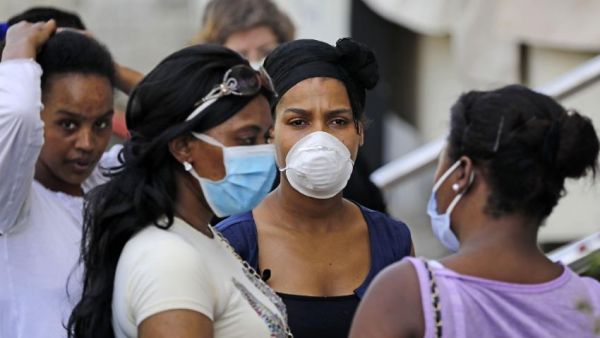A number of Ethiopian domestic workers stranded in front of the Ethiopian Consulate were transported to a hotel Wednesday night through a Labor Ministry initiative.
Labor Minister Lamia Yammine, in coordination with the Cabinet and the Tourism Ministry facilitated the transportation and accommodation of dozens of Ethiopian workers that had gathered in front of the Ethiopian Consulate in Hazmieh in recent weeks, after their employers abandoned them as Lebanon’s economy deteriorated.
Yammine, via Twitter Wednesday night, condemned the scene near the consulate and pledged to take the necessary actions against the employers of these migrant workers who “committed this “humanitarian violation.”
Some Ethiopian migrant workers have been sleeping on the pavement in front of the Ethiopian Consulate because they were fired by the employers who had refused to pay their salaries, give them their belongings and passports, and refused to buy them return plane tickets to their countries.
As the value of the Lebanese pound depreciates, more and more Lebanese employers are unable to pay domestic migrant workers in dollars, and have let them go as a result.
Amnesty International earlier Wednesday had called on the Labor Ministry to create a labor inspection unit designed to monitor the working conditions of migrant domestic workers, so they can act swiftly if a violation of contract is committed by employers.
“These women are among the most marginalized people in society, and are bearing the brunt of the economic crisis which was exacerbated by COVID-19,” Heba Morayef, Amnesty International’s MENA regional director said in a statement.
Morayef also said that the government should immediately provide accommodation, food and health care among other things to these vulnerable domestic workers.
According to Amnesty International, more than 250,000 migrant domestic workers are present in Lebanon. They all work under the Kafala system, which is a migration sponsorship framework that makes way for exploitation, abuse and trafficking leaving migrant workers in extremely vulnerable positions.
Human rights organizations, local NGOs and activists have long been calling for the abolishment of the Kafala system.








